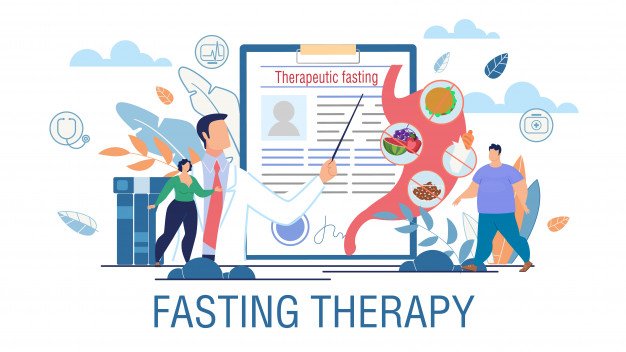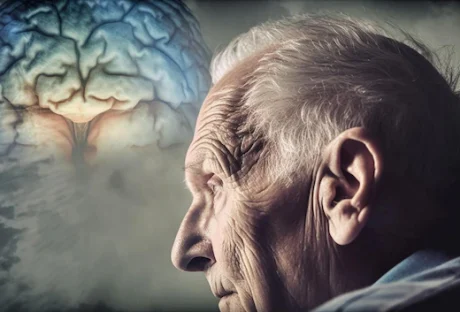Most of us would prefer to lose a few KGs or pounds quickly before going on a summer vacation. However, it is difficult for anyone to change his/her life-long eating habits. Because most diets that follow a predetermined diet or exclude whole food groups are never really a long-term solution. In fact, you can lose weight noticeably in a very short time through diet cures. As soon as the cure is over, you gain weight again just as quickly. Even worse, nutritionists warn that lightning diets can even cause additional weight gain.
However, fasting has been rediscovered in recent years. While diets usually harm health, fasting is said to have numerous health-promoting effects. In particular, the intermittent fasting is to prove the support fat loss, to lower blood pressure and inhibit inflammation. We have summarized for you how interval fasting works and how it can be combined with taking natural hemp oil.
What Is Intermittent Fasting and Why It Is Practiced
Fasting is understood as voluntary withholding of food for spiritual, health, or other reasons. You must not be underweighted and have enough fat reserves that can supply the body with energy during the period.
In most of human history, fasting was part of everyday life. Because hunters and gatherers could not keep their food for long without freezers. Whatever was found or captured had to be eaten quickly. That’s why nutritionists are convinced that fasting regularly is more natural than snacking all day long. This change in our eating habits could have made obesity more common than ever.
Several individuals fast for many days or even weeks. However, this method is unsuitable for most of us. There comes interval fasting (or intermittent fasting) into play. In contrast to conventional diets, it does not require tiny portions and no omission of favorite foods. In other words, it is not like a traditional diet. Rather, it is a planned eating behavior, in which one limits the food intake to a certain period of the day or the week.
How Does Therapeutic Fasting Affect the Body?
There are many different reasons why fasting is practiced. In the past, it was more often a religious or cultural tradition. But so-called therapeutic fasting has also been practiced for a long time for medical purposes. The term therapeutic fasting refers to the practice of fasting to promote health and well-being.
Further studies have recognized the positive effects of fasting for rheumatism, high blood pressure, and high levels of fat and sugar in the blood. Another health benefit of fasting is the onset of autophagy after 16 hours without food. This is a vital process that some describe as the body’s “recycling program.” This is because cells that are damaged or are no longer needed are disassembled and recycled. With this form of cell cleaning, autophagy ensures that we have healthy body cells and a strong immune system.
How Long Should You Fast?
There are two popular and best methods:
16:8 – Meals are scheduled so that there are 16 hours between the last meal the day before and the first meal the day after. The first meal of the day starts an 8-hour period in which you eat. After that, a fasting period of 16 hours begins again.
5:2 – This method divides the week into fasting days and non-fasting days. On 5 days you can eat normally, on 2 days you fast.
Since this reduces calorie intake, both methods should lead to weight loss. Just make sure that you continue to eat normal servings. Otherwise, despite fasting, you might consume as many calories as you normally would.
What to Pay Attention To?
It is recommended to start with a shorter fast. For instance, you can get used to not eating anything after 6 in the evening. If you then have breakfast at 7 in the morning, it is already 13 hours in which you have had no food. From here you can slowly feel for long periods.
The 16:8 method is the best long-term option for most. It is very easy to follow to them by adjusting your daily routine. Some skip breakfast, others dinner. Over time, the body gets used to it and the “diet” becomes a lifestyle. During this, apart from food, calorie drinks are also avoided. You should only drink a lot of water. Unsweetened tea or a bowl of thin vegetable soup can also be enjoyed.
There should always be a break of at least 4 hours between each meal. Take a little walk right afterward, because exercise is good for digestion. During this time, it is also important not to eat snacks. When the blood sugar rises, the body begins to release insulin, and the fat loss stops. In some cases, this can even lead to food cravings.
Nevertheless, be careful not to eat larger portions than usual. It is also recommended to eat healthy sources of protein and plenty of vegetables. This way you will be full for much longer and fasting will be easier. But people with any medical conditions should consult a doctor before starting this fasting.
CBD Oil in Combination with Intermittent Fasting
CBD users who would like to start with intermittent fasting and those who want to make fasting easier with CBD often ask themselves whether one can and should safely combine the two. Fasters already know that MCT oil is a suggested supplement when you are on interval fasting. It is an extract from coconut oil that is often touted as a “keto booster.” Slowly body begins burning reserved fat and it is called Ketosis This can only happen if no carbohydrates are available. The result is straightforward – we lose body fat and weight. Exactly this principle also works with interval fasting.
Another dietary supplement that is being used more and more by fasting people is CBD oil which can be bought from online dispensary Canada. Due to its effect on the endocannabinoid system, which affects many important body processes, CBD can support interval fasting in various ways. A study showed that it can encourage metabolism. It is therefore considered by experts as a potential means of treating and preventing obesity.
There is also evidence that it can inhibit appetite. The well-known cravings of marijuana do not come from CBD, but from THC which can, you get from stashclub. For example, while high-THC medicinal cannabis is used by cancer patients to stimulate appetite, CBD can do just the opposite for many users.
Can CBD Oil Break Fasting?
Most people do without any calories when fasting. Since CBD oil is made with a carrier oil such as hemp seed oil, coconut oil, or olive oil, every drop has calories. Technically speaking, it could, so to speak, interrupt fasting. Intermittent fasting can be avoided by simply consuming the CBD product of your choice during the period in which you eat.
Another recommendation from fasters is to use an MCT-based CBD oil because the combination of these two agents most effectively supports ketosis during fasting. Many fasters swear by CBD and therefore take it to help them get by without food and to prevent food cravings. For example, even if you tend to eat from stress and anxiety, it could help you to be successful in fasting.
Read Also:
- 7 Health Benefits of Black Seed Oil
- You Need to Avoid These Foods for Breakfast
- 5 Best Sports To Lose Weight Fast in 2020

























